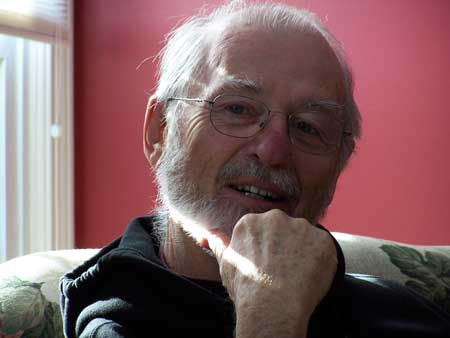Statement of Paul R. Shanley
(Submitted along with his appeal to the Supreme Judicial Court of Massachusetts.)
On February 15, 2005, the world watched while I was sentenced to prison for something that never happened. From the time of my arrest, I was prohibited from speaking by my former attorney [Frank Mondano], and watched–outrage imprisoned in silence–as the media poisoned the jury pool with notions of a “predator,” repeating accusations as fact over and over and over again. I have vigorously maintained my absolute innocence from the beginning, which is why–largely unknown to the public–when offered no jail time by the government before trial, I refused any deal. I refused then to admit to something I did not do. And I refuse today.
This case began with the accusations of four individuals, all friends, all with the same personal injury attorney. All claimed to have “recovered memories” from decades earlier at approximately the same time. All claimed that, as priest of the church where they attended a 50-minute Sunday school class, I pulled them out of a class of approximately ten students, distributed them in various locations widely accessible to others (such as the single, public, open restroom visible from the hallway) and situated among multiple surrounding activities, and violently abused them. Abused them on Sunday mornings with three one-hour masses between eight a.m. and noon. Abused them amidst preparing my sermon, amidst greeting parishioners before Mass, holding Mass, and seeing parishioners off after, with the choir practicing from early morning and playing until afternoon, with grounds filled with priests, lay staff, Sunday school teachers and classes. And no one ever, ever saw me alone with a child.
The government could not even produce a single Sunday school teacher to testify that I was ever seen taking a child out of class as claimed. By the time of trial, these four accusers were whittled down to one, so the jury never saw the logical impossibility of these outrageous claims. Even for the one accuser remaining, there was no evidence apart from his claimed new found memory, and there was no corroboration. This accuser held an image generated by the media, he called that image a memory, and that is all the government needed. Ultimately, the media confirmed emotion as the basis for my conviction, quoting jurors who would communicate in their own statements that they concluded the accusations were true because the accuser was so emotional.
To all who were actually there at Saint Jean’s on Sundays and, when hearing this impossible story, couldn’t understand how such abuse could possibly have happened, especially where not a single person–priest, staff, parishioner, child–ever saw me alone with, much less abusing, multiple children as occurred every Sunday for a period of years: your instincts were right, your confusion was justified. It never happened.
I care not for my reputation; this process took that away from me long ago. But it is I, whether behind bars or free, that will live and die knowing the truth.
